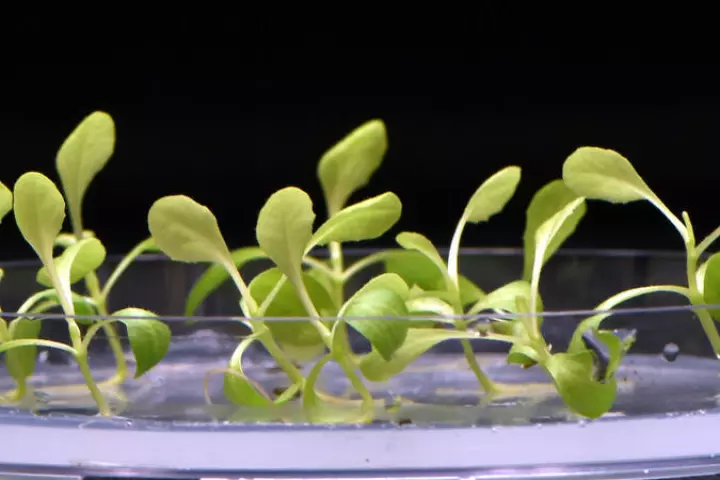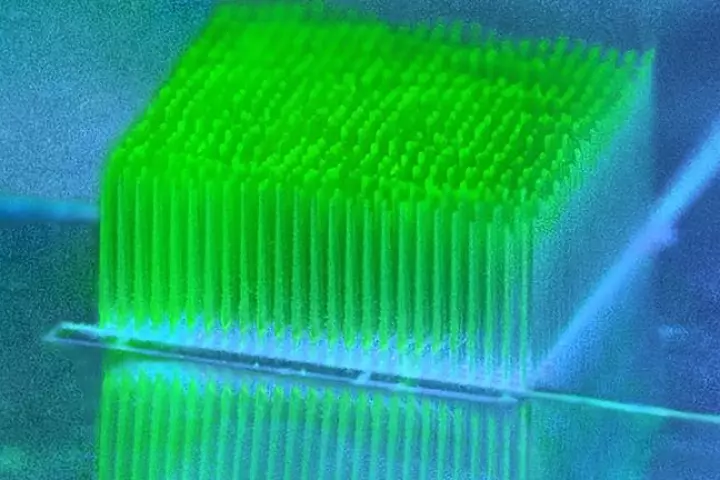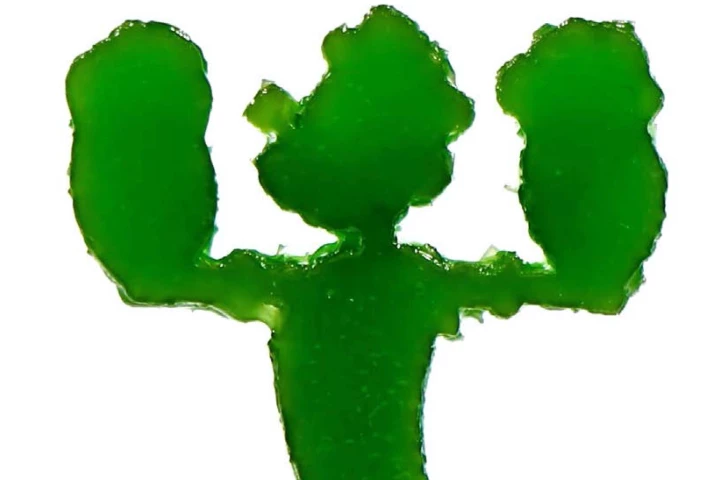Photosynthesis
-
Scientists in Japan have created hybrid plant-animal cells, essentially making animal cells that can gain energy from sunlight like plants. The breakthrough could have major benefits for growing organs and tissues for transplant, or lab-grown meat.
-
Everybody from NASA to David Bowie has wondered if there’s life on Mars – and now we might have a precise place to look for it. A new Caltech study has shown that photosynthetic microbes could thrive in a small habitable zone beneath the ice.
-
Hydrogen-producing artificial leaves might soon be even better at their jobs thanks to a new study that examined the effects of pressure on the chemical processes they run. It all comes down to bubbles.
-
Scientists have given yeast a brand new ability – gaining energy from light. The technique was remarkably easy, the team says, and could not only help us understand evolution but make better beer and biofuel.
-
With complex ecological modeling, scientists have found that plants may be soaking up 20% more CO2 than earlier predicted. It's no "get-out-of-jail-free card," but it highlights the crucial role nature needs to play as we try to stem global warming.
-
A new study has tugged photosynthesis research in an interesting new direction, with a team at Sweden’s Lund University demonstrating how carefully spaced mirrors can be used to trap light and supercharge its effects.
-
Scientists have improved on the natural process of photosynthesis, not only growing plants more efficiently, but doing so in the dark. This could expand agriculture to areas that don’t get enough sunlight, and even help feed future space explorers.
-
Electricity-producing bacteria could be an intriguing renewable energy source. Engineers have now developed a biobattery that contains three layers of different bacteria species, which together take in sunlight and produce electricity.
-
Scientists have long studied the abilities of photosynthetic bacteria that turn sunlight, carbon dioxide and water into energy, and by giving these communities a home likened to a high-rise apartment block, a team has broken new ground in this space.
-
As a seedling matures into a tree, its trunk and branches become stiffer and stronger. Scientists have now replicated this effect in a photosynthesis-assisted 3D-printing ink, made partially from spinach.
-
One of the challenges in 3D printing biological tissue lies in the fact that the cells may die before oxygen-delivering blood vessels grow into the material. Harvard scientists are addressing that issue, by adding algae to the mix.
-
Photosynthesis is one of nature’s most useful chemical reactions, so scientists often try to mimic it. Researchers have now developed a new way to make hybrid synthetic-living cells that can use photosynthesis to clear carbon dioxide from the air.
Load More











